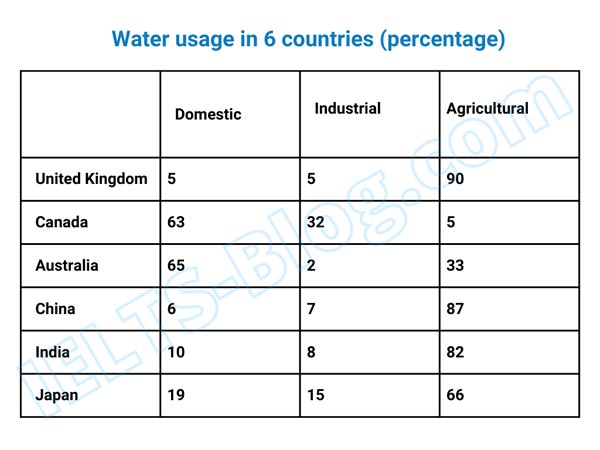New IELTS questions from Canada – April 2025 (Academic Module)

Thanks to our subscriber, today we are sharing the writing tasks from her recent IELTS exam in Canada.
Writing test
Writing task 1 (a report)
The table below describes the percentages of water used for 3 different purposes in 6 countries in 2005.
Summarise the information by selecting and reporting the main features, and make comparisons where relevant.
* Note: this is not the original table given in the test, it was recreated for the purpose of demonstration.
Writing task 2 (an essay)
Nowadays there is less social contact between the older and the younger generation.
Why is this happening? What steps could be taken to encourage more contact between them?



